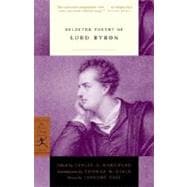
What is included with this book?
| Biographical Note | |
| Introduction Childe Harold's Pilgrimage | |
| Canto the First Childe Harold's Pilgrimage | |
| Canto the Second Childe Harold's Pilgrimage | |
| Canto the Third Childe Harold's Pilgrimage | |
| Canto the Fourth On Leaving Newstead Abbey | |
| The First Kiss of Love To Woman Reply to Some Verses of J. M. B. Pigot, Esq., on the Cruelty of His Mistress | |
| To the Sighing Strephon Lachin Y Gair To Romance To a Lady "I would I were a careless child" "When I rov'd a young Highlander" Fragment, Written Shortly after the Marriage of Miss Chaworth | |
| Lines Inscribed upon a Cup Formed from a Skull Inscription on the Monument of a Newfoundland Dog "Well! thou art happy" | |
| To a Lady, on Being Asked My Reason for Quitting England in the Spring Stanzas Written in Passing the Ambracian Gulf "The spell is broke, the charm is flown!" | |
| The Girl of Cadiz Written after Swimming from Sestos to Abydos "Maid of Athens, ere we part" Farewell to Malta Newstead Abbey Epistle to a Friend | |
| To Thyrza "Away, away, ye notes of Woe!" "One struggle more, and I am free" Euthanasia "And thou art dead, as young and fair" Lines to a Lady Weeping "Remember thee! remember thee!" | |
| "Thou art not false, but thou art fickle" Sonnet, To Genevra Sonnet, To the Same Ode to Napoleon Buonaparte Stanzas for Music ("I speak not," etc.) Stanzas for Music ("There's not a joy," etc.) Stanzas for Music ("There be none of Beauty's daughters") | |
| Darkness Churchill's Grave Prometheus A Fragment ("could I remount," etc.) Sonnet to Lake Leman On Sam Rogers Stanzas to the Po Stanzas ("Could Love for ever") Stanzas Written on the Road Between Florence and Pisa Aristomenes | |
| Last Words on Greece On This Day I Complete My Thirty-sixth Year [Love and Death] "She walks in Beauty" | |
| "The Harp the Monarch Minstrel swept" "If that high world" "The wild gazelle" "Oh! weep for those" "On Jordan's banks" Jephtha's Daughter "Oh! snatched away in Beauty's bloom" | |
| "My soul is dark" "I saw the weep" "Thy days are done" Song of Saul Before His Last Battle Saul "All Is Vanity, Saith the Preacher" "When coldness wraps this suffering clay" | |
| Vision of Belshazzar "Sun of the sleepless!"253 "Were my bosom as false as thou deem'st it to be" Herod's Lament for Mariamne | |
| On the Day of the Destruction of Jerusalem by Titus By the Rivers of Babylon We Sat Down and Wept | |
| The Destruction of Sennacherib "A Spirit passed before me" "By the Waters of Babylon" Fare Thee Well Stanzas to Augusta ("When all around grew drear and dark") Stanzas to Augusta ("Though the day of my Destiny's over") | |
| The Dream Lines to Mr. Hodgson Translation of the Nurse's Dole in the Medea of Euripides Windsor Poetics "So we'll go no more a-roving" Versicles To Mr. Murray ("To book the reader, you, John Murray") To Thomas Moore Epistle from Mr. Murray to Dr. Polidori Epistle to Mr. Murray ("My dear Mr. Murray") To Mr. Murray ("Strahan, Tonson, Lintot of the times") Epigram, from the French of Rulhieres Epilogue | |
| On My Wedding-Day My Boy Hobbie O Lines, Addressed by Lord Byron to Mr. Hobbouse on His Election for Westminster Epigram ("The world is a bundle of hay") John Keats English Bards, and Scotch Reviewers | |
| The Vision of Judgment From Don Juan: Canto the First From Don Juan: Canto the Second From Don Juan: Canto the Third From Don Juan: Canto the Fourth From Don Juan: Canto the Seven | |
| Table of Contents provided by Publisher. All Rights Reserved. |
The New copy of this book will include any supplemental materials advertised. Please check the title of the book to determine if it should include any access cards, study guides, lab manuals, CDs, etc.
The Used, Rental and eBook copies of this book are not guaranteed to include any supplemental materials. Typically, only the book itself is included. This is true even if the title states it includes any access cards, study guides, lab manuals, CDs, etc.
Excerpted from Selected Poetry of Lord Byron by George Gordon Byron
All rights reserved by the original copyright owners. Excerpts are provided for display purposes only and may not be reproduced, reprinted or distributed without the written permission of the publisher.